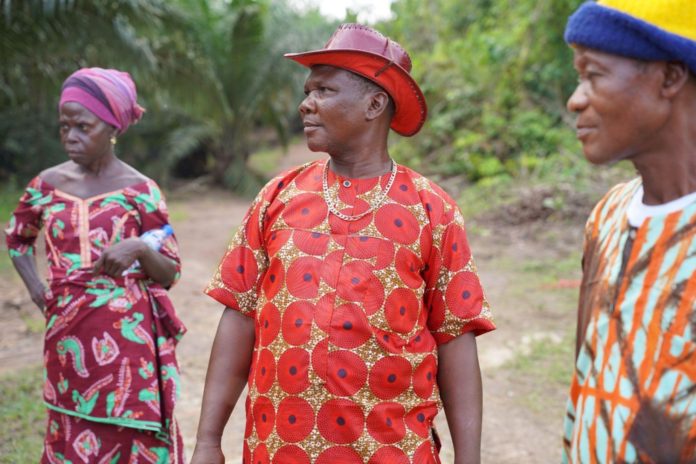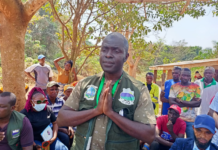
By Wilhemina B. O. Beyan
For a century, Liberia’s rich lands have attracted multinational corporations to source natural resources like rubber and oil palm. Today, over 10 percent of Liberia’s land mass is owned and occupied by four major oil palm companies.
This massive allocation of arable farmlands and forests to foreign investors has not come without a cost. Many communities who have lived and farmed on the lands for generations found that their land was taken without their free, prior and informed consent.
Communities in Grand Cape Mount, Bomi and Maryland counties are now left without land, livelihoods, or food and clean water sources. Importantly, the communities have no clear way to find redress for their grievances.
Across the world, there is newfound energy towards sustainability, and more consumers are unwilling to buy products linked to environmental and human rights abuses. Emerging policies in the European Union would require human and environmental rights due diligence for all products imported into European markets.
Global brands like Nestle and Unilever, which source palm oil from places like Liberia, are adopting “forest positive” policies, pledging to use their supply chains to eliminate deforestation and contribute to rural livelihoods in their sourcing areas. But with supply chains spanning continents from rural Liberia, to the Peruvian Amazon, to the forests of Sumatra, Indonesia, this will be difficult to achieve.
To address this need, the Liberian-based CSO-Oil Palm Working Group and the Indonesian-based AsM Law Office, with support from the global nonprofit Rights and Resources Initiative, have developed a tool for communities and companies to monitor the impacts of land-based investments on the communities’ ancestral lands. The tool involves engaging with local communities as partners and sources of timely and accurate information on supply chain impacts – linking corporate policies to data collected by communities.
Why is this important for companies? Community sourced data on the impacts of supply chains benefits everybody, including corporations and their consumers. With reliable information and formal access to communities, companies will be able to address potential harms caused by their operations so that they can comply with the stricter regulations on sustainable supply chains.
At the same time, the tool will equip governments with data on how companies are affecting their citizens and communities. And most importantly, local communities will finally have a seat at the table to discuss how their lands are utilized – and the opportunity to benefit, not suffer, from the wealth of resources in their ancestral lands.
About the Author
Wilhemina B. O. Beyan is a Programs Director at the Social Entrepreneurs for Sustainable Development (SESDev) in Liberia. She works with local communities to monitor and report on oil palm companies’ activities, and to help enhance compliance with voluntary commitments and laws. Mina, as she affectionally called is also a key member of the CSO Oil Palm Working Group, based in Monrovia, and sits on the National Oil Palm Platform of Liberia (NOPPOL) secretariat as CSO representative.






















